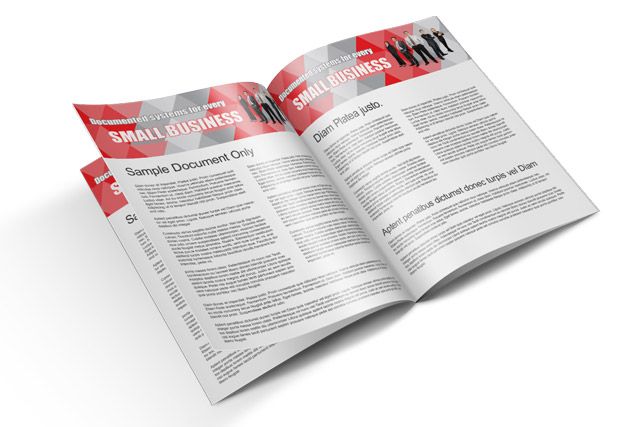
Court Case Decisions on the Personal Property Securities Register
Issue 0025
UNDERSTANDING DECISIONS OF COURTS AND LIQUIDATORS’ ACTIONS RELATIVE TO THE PPSR AND THE PPSA IS IMPORTANT FOR BUSINESS OPERATORS
The Personal Property Securities Act (PPSA) has operated in Australia since 2012. Since that time, there has been a number of court cases and significant non-court actions by liquidators, receivers and administrators utilising the PPSA and, in most cases, highlighting the lack of an effective registration on the Personal Property Securities Register (PPSR). Because of the courts’ decisions and insolvency practitioners’ actions, millions of dollars have been lost by businesses, both large and small, mainly caused through ignorance of the operations of the legislation and the desirability for a registration to be made, if the loss of any asset or money owing to a business could cause financial embarrassment.
We believe that solicitors and accountants have a role to play in assisting businesses to implement appropriate internal procedures, so your business can identify whether a particular customer or transaction should be considered for registration on the PPSR. It’s too late worrying about it when an ‘insolvency event’ has occurred for a customer or the owner of the property on which you have an asset situated. There are very strict lodgement deadlines on the PPSR, which means that, for effective protection of your assets, appropriate recognition of the transaction if it is one that could cause financial embarrassment for your business needs to be determined at the time the transaction is entered into, so an effective registration could be made on the PPSR.
What is the problem?
Put bluntly, the problem is that not registering on the PPSR could cause the failure of a business. Millions of dollars have already been lost in Australia and New Zealand because businesses were not aware of the legislation and its repercussions or elected not to register a transaction that, in hindsight, perhaps they should have registered.
Oversight
It’s worth reviewing some of the decisions of the courts and the actions of insolvency practitioners, acting in accordance with the law, to give you an overview as to what has been happening in the courts and the business community that could be attributed to the PPSA and the PPSR.
Inventory
Inventory is a big problem. Where the collateral is inventory the ‘security interest’ must be registered on the PPSR before the time the grantor (your customer) obtains possession of the collateral. In one instance, a franchise operating a number of different sites had a liquidator appointed. The liquidator reviewed the PPSR and found that most of the stock that had been supplied on a consignment basis to the individual stores had not been registered and was able to be seized for the benefit of the secured creditor.
Heavy Moving Equipment
Heavy moving equipment which was owned by one company in a group, obviously the ‘asset owning company’, was then hired to another company in the group, which was the ‘operational company’. This company had borrowed money from a bank. The asset owning company did not register a ‘Personal Property Security Lease’ (PPS Lease) on the PPSR for the equipment which was worth $2.2million. A liquidator was appointed to the operational company and the liquidator checked the PPSR and found that there was no registration for the Caterpillar tractors, etc. The liquidator was able to seize the earthmoving equipment and sell those assets for the benefit of the secured creditor.
Water Tanker
A water tanker was on dry hire to a mining company. The water tanker is a vehicle which would have a serial number and, in accordance with the PPSR regulations, the vehicle was being leased for an indefinite period and, therefore, there should have been a ‘PPS Lease’ which was registered on the PPSR. The mining company which was leasing the water tanker got into financial difficulties and a liquidator was appointed. The liquidator seized the water tanker and sold it for the benefit of the secured creditor. The original owner has been left with no asset and still has a loan for their own borrowing that they made to buy the water tanker in the first instance.
Cabinet Making Business
A cabinet making business constructed a number of kitchen suites to be installed into houses erected by a developer in a display centre. The cabinet making business did not submit a ‘Terms of Trade’ agreement or a ‘Retention of Title’ agreement to the property developer and, obviously, they made no registration on the PPSR. The cabinet maker had agreed to rent the kitchen suites to the developer for a period of time and then, when the houses were sold, would be paid a pre-negotiated price for the kitchen suites. Unfortunately, a liquidator was appointed and the liquidator made a claim for alleged preferential payments of approximately $170,000. The cabinet maker was unable to pay the amount and the business has been forced to close.
Cleaning Equipment and Product Supplier
A cleaning equipment and product supplier thought they had done the right things but they used an inappropriate ‘Terms of Trade’ agreement and a ‘Retention of Title’ agreement and therefore had not perfected their entitlement by registration on the PPSR. Part of the problem was that the company relied on what they thought was an appropriate ‘Retention of Title’ Clause, which was printed on the invoices that were supplied to the customer. Under the PPSA rules, a customer needs to agree to a ‘Retention of Title’ Clause prior to goods being supplied and this registration needs to be made on the PPSR within 15 days of the first supply. However, the documentation also requires a suitably worded clause to allow for future ‘security interest’ to be granted, which therefore eliminates the need to register each transaction. Where there is no formal agreement providing for ongoing supplies, generally, each supply would be considered to be a separate contract or security agreement. A liquidator was appointed to the customer; the liquidator was able to claim all of the assets.
Trucks and Trailers
There was a case before the courts where a business hired trucks and trailers with a market value of $1.4million. The court found that the suppliers regularly engaged in the business of leasing goods and hence the Hire Agreement is deemed to be a ‘PPS Lease’. The hirers did not take steps to perfect their ‘security interest’ on the PPSR and the liquidator was able to seize the trucks and trailers and sell them for the benefit of the secured creditor.
On-Hiring of Goods
On-hiring of goods can also cause considerable problems. There has been an incident where one company (Company A) hired a number of items of expensive equipment to another company (Company B). Under Company A’s terms of hire, Company B was prohibited from on-hiring Company A’s equipment, however, Company B on-hired equipment to Company C without Company A’s written authority. Company B is now negotiating with the administrator to recover the property that it owns and also Company A owns from the administrator of Company C. This situation could have been avoided had Company A insisted that Company B comply with the PPSA and registered its interest in Company A’s property when it was on-hired. Companies that are hiring equipment would be well advised to insist that each party in the transaction complies with the PPSA. In practice, this is a difficult one to implement. With a due diligence review, your business could be formally advised of incidences where these types of activities have happened and the recommendation would be to clarify with your hirer what has happened to the goods you’ve hired to them, on a monthly basis. If the goods have been hired to someone else, you should be insisting that an appropriate entry should be made on the PPSR. Comments within the hiring industry have indicated that there have been many incidents where the owners of goods that have been hired have suffered financial loss because of ignorance of this legislation or a decision not to register on the PPSR.
Preferential Payments
Another area that is reputed to be causing many problems is ‘preferential payments’. I contacted a liquidator and asked “What were the issues relating to prefential payments?”. He said to me “There is no issue, we can’t make a claim against them if people have registered the transaction of the PPSR.” I then asked him, “What about the people who haven’t registered the position on the PPSR?”. He then laughed and said, “Obviously, we then go seeking a preferential payment from those people who haven’t bothered to register”. We believe this is a very serious problem that is a time bomb ticking away that could affect just about every small business. There are a lot more assets covered then the ones that have been referred to in this article. We will cover some of those other potential problems in the next article. It's worth repeating the comments that we made in the last edition of ‘Surival Hints for Small Business’ from Darren Vardy, Director of SV Partners, Specialist Accountants and Advisors: “As an insolvency practitioner, quite often we are faced with suppliers who have retention of title clauses (Romalpa) in place, but are not aware of the changes in the security regime effective in January 2012. This lack of awareness amazes me and is predominant amongst small businesses. Unfortunately the business owner generally finds out the hard way, when faced with an insolvency practitioner who tells them that they no longer have the title and/or ownership of goods.”
Accountants can assist
Accountants, conducting due diligence reviews of their clients’ affairs at least on an annual basis, can assist small business operators to identify issues within their business operations, to highlight transactions that should be given due and proper consideration as to whether they should be registered on the PPSR. In the first instance, we recommend that all small business operators should be making an appointment to see a commercial solicitor and the commercial solicitor should be requested to draft appropriate ‘Terms of Trade’ and ‘Retention of Title’ agreements for your business. Please remember that, in some instances, you may need different sets of ‘Terms of Trade’ agreements and ‘Retention of Title’ agreements to cover different commercial relationships you have with your customers. Accountants, utilising business advisory services, are able to conduct a detailed due diligence review of your business. If your accountant indicates that they’re unable to conduct this type of review for you, we can refer you to an accountant, utilising the PPSR due diligence system, which helps with the identification of transactions to which detailed consideration should be given on whether a registration is desirable on the PPSR. Please don’t hesitate to send an email to peter@essbiztools.com.au, with your location and postcode, and we will send you the names of accountants, within your area, who are able to provide you with this service. A due diligence review will take as little as one hour. For some businesses, it may take up to eight hours, depending on the complexity of the business activities. As a preview of what the PPSR due diligence review has to offer, a complimentary copy of the article, ‘Policy On Personal Property Securities Register – Retention of Title’, which is included in the system, can be downloaded with this transcript below:
Past Posts
-
 Innovation is Important for SMEs
Innovation is Important for SMEs -
 6 Steps to Boost Your Productivity and Profits
6 Steps to Boost Your Productivity and Profits -
 Tax Incentives For Early Stage Investors
Tax Incentives For Early Stage Investors -
 ESIC Targets SMEs, Inventors, Young Companies
ESIC Targets SMEs, Inventors, Young Companies -
 Early Stage Innovation Company Investor Opportunities
Early Stage Innovation Company Investor Opportunities -
 Will You Have an ESIC Story?
Will You Have an ESIC Story? -
 Are you Receiving a CFO Service from your Accountants?
Are you Receiving a CFO Service from your Accountants? -
 Succession Planning
Succession Planning -
 Business Plans
Business Plans -
 The Year for Business Advisory Services!
The Year for Business Advisory Services! -
 Are you Aware of the PPSR?
Are you Aware of the PPSR? -
 SME Operators – Accountants can Help you with Debtors’ Ma...
SME Operators – Accountants can Help you with Debtors’ Ma... -
 Happy New Financial Year
Happy New Financial Year -
 The Finalisation of the ESIC Legislation will be a Great ...
The Finalisation of the ESIC Legislation will be a Great ... -
 A Business Evaluation Review Can Assist You
A Business Evaluation Review Can Assist You -
 June is a Great Time to Prepare a Business Plan
June is a Great Time to Prepare a Business Plan -
 Businesses Need a Broad Succession Strategy
Businesses Need a Broad Succession Strategy -
 Innovation Companies are a Great Opportunity for SMEs
Innovation Companies are a Great Opportunity for SMEs -
 The PPSR – are you aware of it and how it can affect your...
The PPSR – are you aware of it and how it can affect your... -
 Debtors Management - Vital for Business Success
Debtors Management - Vital for Business Success -
 How can your Accountant assist you?
How can your Accountant assist you? -
 The Personal Property Securities Register – how do you pr...
The Personal Property Securities Register – how do you pr... -
 Legal Advice is Essential for Business Success
Legal Advice is Essential for Business Success -
 Is your accountant your trusted adviser
Is your accountant your trusted adviser -
 Is your accountant famous for adding value?
Is your accountant famous for adding value? -
 Portfolio Allocations Are Important For Effective Management
Portfolio Allocations Are Important For Effective Management -
 The Challenges To Navigate In 2015
The Challenges To Navigate In 2015 -
 Business Plans Are Important For All Businesses
Business Plans Are Important For All Businesses -
 Entrepreneurs’ Infrastructure Program
Entrepreneurs’ Infrastructure Program -
 Digital Disruption Is A Major Concern
Digital Disruption Is A Major Concern -
 Court Case Decisions on the Personal Property Securities ...
Court Case Decisions on the Personal Property Securities ... -
 Personal Property Securities Act Presents Businesses A "T...
Personal Property Securities Act Presents Businesses A "T... -
 Do You Require Additional Financial Services?
Do You Require Additional Financial Services? -
 Personal Property Securities Act – How Does It Affect Sma...
Personal Property Securities Act – How Does It Affect Sma... -
 Business Health Checks For Your Business
Business Health Checks For Your Business -
 Why Do Some Accountants Offer Chief Financial Officer Ser...
Why Do Some Accountants Offer Chief Financial Officer Ser... -
 Getting Assistance From Your Accountant To Better Manage ...
Getting Assistance From Your Accountant To Better Manage ... -
 Identifying The Services You Want To Receive From Your Ac...
Identifying The Services You Want To Receive From Your Ac... -
 What Is Business Advisory Services?
What Is Business Advisory Services? -
 Accountants Can Offer More Services Than Just Tax Returns
Accountants Can Offer More Services Than Just Tax Returns -
 Being Kept In The Loop By Your Accountant
Being Kept In The Loop By Your Accountant -
 Personal Property Securities Register – Have You Develope...
Personal Property Securities Register – Have You Develope... -
 Reducing Debtors' Days Outstanding
Reducing Debtors' Days Outstanding -
 Management of Costs - An Overview
Management of Costs - An Overview -
 Succession Planning - Why Is It Necessary?
Succession Planning - Why Is It Necessary? -
 Safe Guarding your Business under the Personal Property S...
Safe Guarding your Business under the Personal Property S...




































